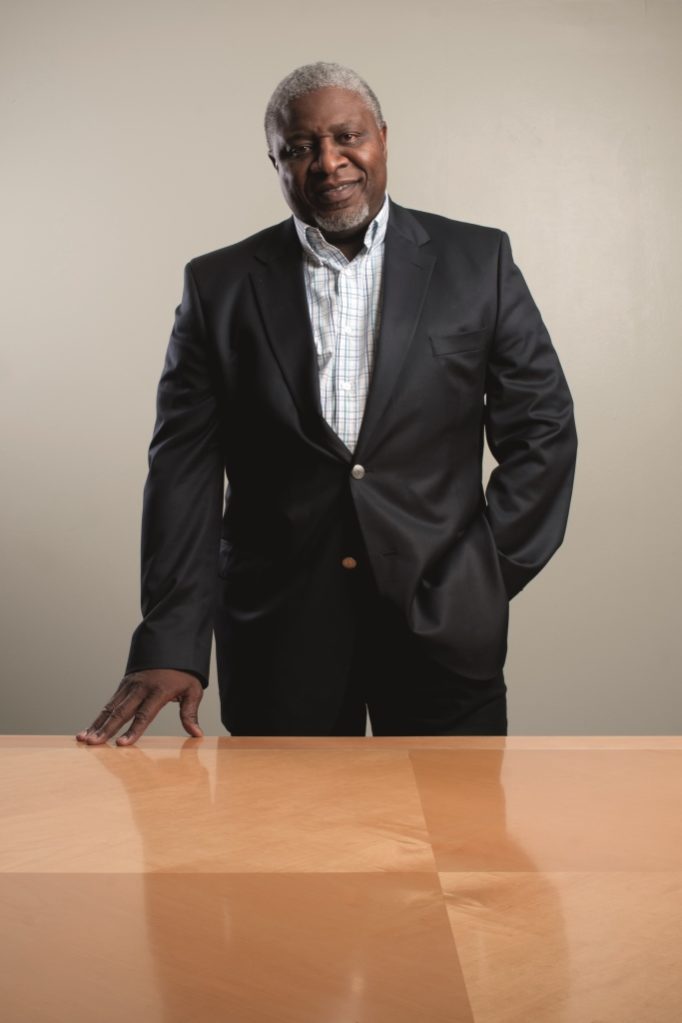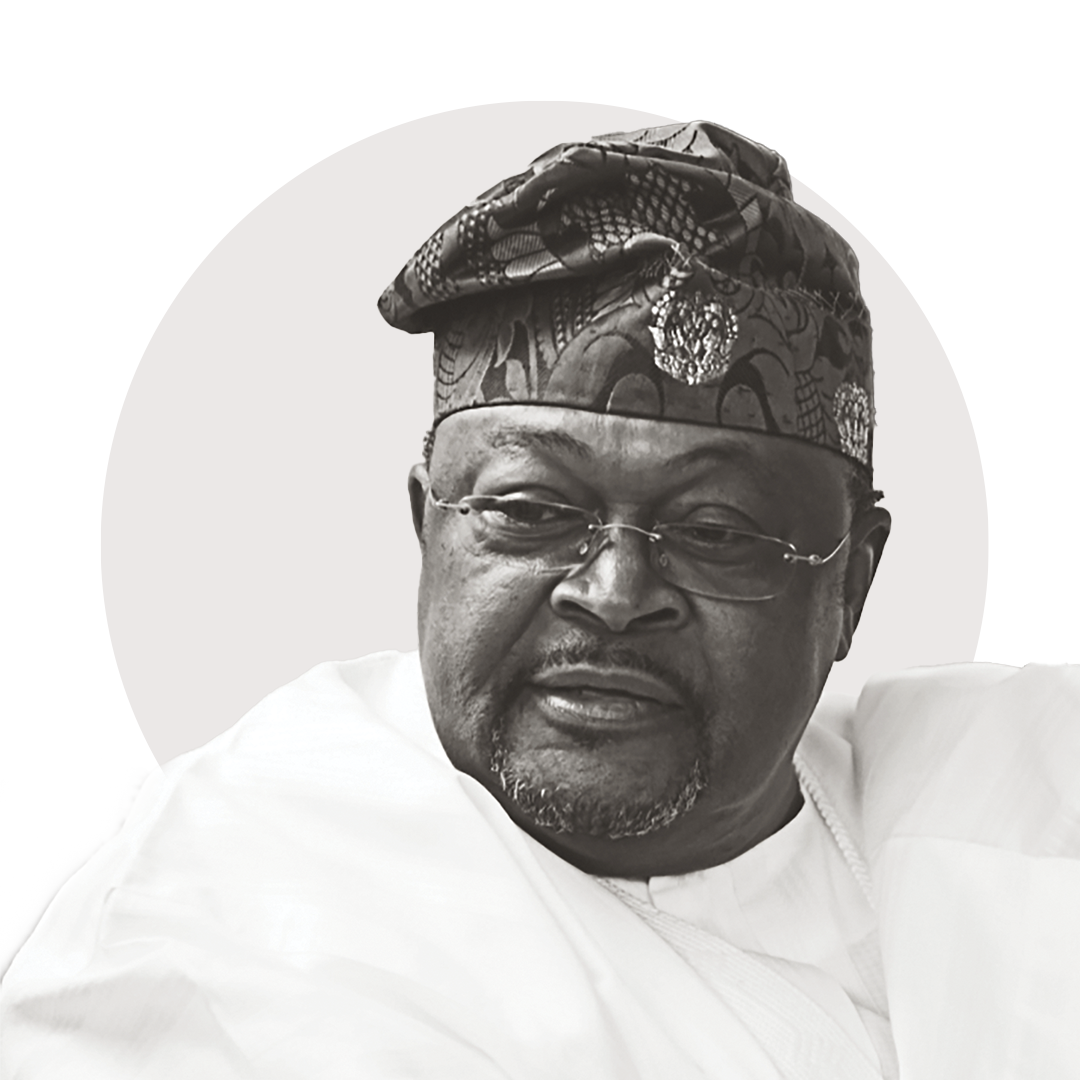It was 2001. Billions and billions of dollars were up for grabs in what South Africans call “black economic empowerment” deals. That is, swift deals, selling black South Africans equity, often at a discount, in a bid to redress the imbalances of the past in white-dominated industries like mining. They are worth a fortune and were taking place right under Sipho Nkosi’s nose.
Standing by, while others prosper, is not quite the mark of a man who is ambitious by nature. Growing up, he says, he never thought he would do any job other than that which was the preserve of blacks at the time—being a clerk, teacher, priest or something like that. It took other people to persuade Sipho Nkosi to throw his hat in the ring.

Sipho Nkosi, CEO of Exxaro Coal at Inyanda Coal mine in Witbank, South Africa
Once he made that decision, though, he never looked back. Eleven years later, he is an astute, if not shrewd, captain of industry leading a cash-flush $9 billion conglomerate. To say nothing of the estimated R1.6 billion ($208 million) personal fortune he has amassed in the process.
It all started when Anglo American, the mother and father of mining in Africa, together with Anglo-Australian multinational BHP Billiton—the biggest miner in the world—put some of their South African coal assets up for sale.
Loading...
Having occupied some of the most senior positions a black person could occupy at both companies, at the time, Nkosi thought he was the ideal person to lead a consortium, a diverse group that included some of the best black brains in mining, among them the country’s foremost nuclear physicists, geologists and mining engineers.
Months later, Eyesizwe Coal—Nkosi’s company—would win an open tender for an assortment of underground and open cast coal operations.
The consortium would quickly raise R600 million ($78 million) for the business, but as Nkosi and the company would soon discover, raising money was only the beginning.
The hard part would come when he had to appease disbelievers, including “rebel” white workers and their “skeptical” black counterparts.
“They all thought black folk, no matter how educated, would find it extremely difficult, if not impossible, to run a mining company,” says Nkosi.
The FORBES AFRICA team meets media-shy Nkosi in his makeshift office, at the Mining Indaba in Cape Town. More than 7,000 delegates, including the richest and most famous names in mining, are here for the annual gathering, where major decisions are made. In between deal-making meetings and the consideration of proposals from prospective suppliers, Nkosi recalls how he got here.
He still vividly remembers Eyesizwe’s first strategy session, after taking over the Anglo-Billiton assets. He was chairing the company’s SWOT analysis session when one of the (white) mine managers stood up and said: “Sir, with all due respect, you guys know nothing about mining. We suggest that you go to Johannesburg and allow us to run the mine for you.”
It was the first time in the new environment, that Nkosi’s trademark calmness was put to the test. While his partners thought the white guy needed to be reminded of who was the boss now, Nkosi didn’t think it was the time, or the occasion, to take offense. So he didn’t.
Months later, at a year-end function, Nkosi was standing next to a (white) CEO of one of the vendor companies when a (black) worker approached, proceeded to greet the other CEO and asked him: “How could you give this business to these guys? What do they know?”

In both instances he didn’t take offense, but said to himself: “My job is to win these people over. I will focus on excellence. All the time.”
Nkosi first silenced his critics in 2006 when, a mere five years into the challenge, he was one of the chief architects of the successful merger of Eyesizwe Coal with Kumba Resources’ non-iron ore assets to form Exxaro. The transaction was hailed as the deal of the year, singled out for being head and shoulders above the rest in terms of black management participation, the level of economic interest held by black people, as well as the extent of voting rights held by black people.
The following year, Nkosi took over the running of the merged entity and, five years on, it is not only the second largest coal producer in South Africa but also the biggest diversified domestic mining company in the country. Yet Nkosi is still not satisfied.
He now wants Exxaro to be up there with the world’s mining greats: Rio Tinto; BHP Billiton; Xstrata and the Anglo Americans of this world.
Ambitious as he admits all this is, he wants to start by growing Exxaro—which already has a presence in the continents of Europe, America, Asia and Africa—into a $20 billion market cap world player by 2020.
He already has shareholder approval for spending R9.5 billion ($1.2 billion) on a mine in Limpopo, in the north of South Africa. The Grootegeluk mine will supply over 14 million tons of coal a year to Medupi, a new coal-fired power station being built by the country’s electricity utility, Eskom, in response to the electricity shortages of recent years. That’s apart from another R2.4 billion ($313 million) power station project in South Africa’s east coast province of KwaZulu-Natal, as well as a handful of beneficiation projects and new coal mines.
Nkosi wants to double Exxaro’s coal output to 80 million tons a year, while increasing the company’s portfolio of non-coal interests.
In January, Exxaro announced that it intended to pay $338 million in cash for a takeover of Democratic Republic of Congo iron ore company, African Iron.
Suggested to him that he seems to be moving, well… rather aggressively, he quickly retorts: “I used to have a boss, (former Kumba Resources CEO) Con Fauconnier, who used to say ‘Sipho, don’t ever grow yourself to death. At the end of the day you must cut your cloth to fit you.’”
Nkosi, it would seem, has indeed taken Fauconnier’s advice. Last year he closed down the company’s zinc plant, Zincor.
“It was not making money at all,” he says. The unions, and the government, were not impressed.
South Africa-based mining research company Avior’s senior analyst, Clinton Duncan, is one of those who believe that Exxaro is in fact “undervalued” and is “bullish” in terms of its share performance. Hence, he doesn’t think Nkosi will have a problem fulfilling his driving ambition.
Coal accounts for 33% of Exxaro’s earnings, the analyst points out. Nkosi’s battle plan, on the other hand, includes doubling Exxaro’s coal output to 80 million tons a year—a good move, Duncan says, considering the fact that about 77% if South Africa’s primary energy needs are provided by coal.
The day after our interview, Susan Shabangu, South Africa’s minister of mineral resources, announced that coal was a strategic resource for the country and that the government would do everything in its power to help its miners. Days later the president of South Africa, Jacob Zuma, announced a range of support initiatives his government had come up with, including the provision of rail transport connecting coal fields to power stations.
Add to that the fact that populous nations like India and China’s ever-increasing energy demands are going to continue for some time, and you will certainly realize that Nkosi’s plan makes a lot of sense, says Duncan.
But what about environmental concerns, I ask? Put to him that the marked rise in environmental awareness and activism, across the globe, could restrict the world’s use of coal, Nkosi responds: “We know that at some point the world is going to insist on clean energy.”
So what’s the plan?
Exxaro’s venture into solar, wind and methane gas was only a matter of time, he says, although all he’s prepared to disclose, for now, that the outcome of the company’s commissioned feasibility studies into the possibility of Exxaro setting up renewable energy companies has pointed in one direction: that Exxaro would be able to “make huge sums of money in renewables”.
“By the way, South Africa’s search for alternatives started a long time ago,” Nkosi says, relating the story of how, back in the seventies when faced with an oil crisis, the country started manufacturing oil from gas. Worldwide too, mining has been constantly evolving, he adds, citing examples of countries like Japan and France, which had long started moving away from coal to gas.
Looking into alternatives, though, does not mean Exxaro will abandon coal anytime soon, Nkosi says: “South Africa will, for all intents and purposes, continue to use coal. We don’t have gas. We have coal in abundance, and it’s cheap.”
Reminded of recent incidents where Greenpeace activists upped the ante with Eskom and mounted a campaign against the electricity utility, Nkosi is unperturbed. Exxaro is hard at work trying to find environmentally friendlier ways of mining and utilizing coal, he says calmly, insisting the business was working hard at ensuring that it was carbon neutral and would be able to mitigate its carbon footprint.
It’s all part of Exxaro’s commitment to doing business differently; by showing that it cares as much about profits as it cares about its people and the environment.
In December, Exxaro paid out R1 billion ($130.5 million) in bonuses to 9,694 members of its staff, 90% of whom were black low-level workers and managers. The employees were rewarded because they “worked very hard and pushed the company to where it is today”, Nkosi said at the time, adding that the company wanted to debunk the myth that “the fat cats at the top” only cared about making money for themselves.
Frans Baleni, the general secretary of South Africa’s National Union of Mineworkers, is at the head of South Africa’s most powerful union with hundreds of thousands of members, which has had many industrial disputes with Exarro. He says there aren’t many captains of industry out there who are able to stay true to themselves and be as mature, tactful and down to earth as Nkosi.
“You can’t fault him on that,” Baleni says, “unlike other mining bosses who can be abusive, arrogant and self-absorbed”.
“Nkosi makes you wonder whether you are not the one who is wrong—even when you know you are so right. Even when he says go to hell, he says it in such a manner that it doesn’t hurt,” says Baleni.
Nkosi is not so gentle about saying it in a gentle manner when it comes to the belligerent pro-nationalization lobby that is the ANC Youth League. When Nkosi once commented that nationalization was “antiquated” and “discredited”, the governing party’s youth was very hurt, publicly berating him for his “misleading, pathetic” lies. But Nkosi, who was president of the Chamber of Mines of South Africa at the time, took the rebuke in his stride.
If it so happens that he crosses paths with the youngsters again, he would still tell them.
It has got a lot to do with his mantra, the one that carried him through those first days, weeks and months of his foray into the tough life at the top of mining, where reputations can be lacerated in the board room.
“People had quite a lot of nasty things to say about this Zulu boy who knows nothing about this industry,” says Nkosi.
“When there’s negativism, always kill it by massive success.”
And there are few companies on the African continent that can claim to be as massive and successful as Exxaro.
Loading...





















